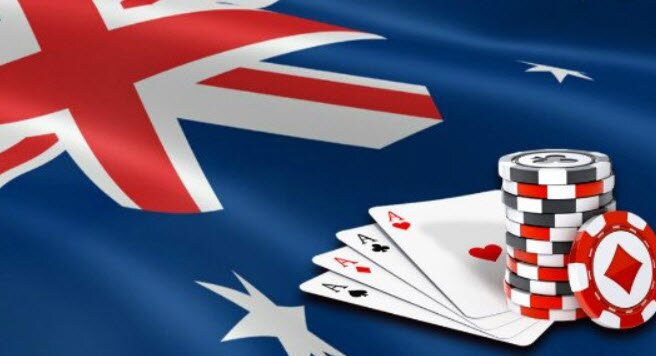
Australia’s gambling legalities present a complex, dynamic landscape shaped by a blend of federal and state regulations, historic precedents, and evolving technology. For players, operators, and affiliates targeting the Australian market in 2025, understanding these intricacies is vital—not just for legal compliance, but for responsible, rewarding gaming. This guide offers a comprehensive review of gambling legalities in Australia, optimized for local intent and user relevance.
Historical Foundations and Regulatory Evolution
Early Legal Landscape
Australia has long been renowned as a nation passionate about gambling, from horse racing and lottery tickets to poker machines (“pokies”) and sports betting. Brick-and-mortar casinos flourished through the 20th century, governed by state authorities, each with licensing systems and controls over slot machines, table games, Keno, and betting shops. The federal government provided umbrella oversight, focusing on fraud, consumer safety, and anti-money laundering, while states and territories licensed land-based operators, set minimum age policies, and enforced integrity checks.
Birth of Remote Gambling Laws
The explosion of online gaming prompted federal action. In 2001, Australia enacted the Interactive Gambling Act (IGA)—the pivotal law restricting online casino gaming for locals. Its primary aims: prevent problem gambling, block illegal websites, and regulate betting ads.
Core Australian Gambling Laws in 2025
The Interactive Gambling Act
At the heart of Australia’s gambling legal framework lies the Interactive Gambling Act 2001:
-
Prohibits domestic operators from offering online casino games (real-money slots, blackjack, roulette) or live sports betting to Australians.
-
Permits domestic online betting only for sports, horses, and lotteries (no in-play betting).
-
Bars advertising of online gambling products/services within Australia across TV, radio, online content, and print. Violators face large fines and licence revocation.
-
Exemptions: Licensed offshore sports betting and international lotteries in rare cases, but online casino games remain illegal unless based abroad.
Amendments and Recent Reforms
In 2016, the Interactive Gambling Amendment Bill solidified restrictions:
-
Banned all digital casino games—even those licensed offshore.
-
Outlawed live/in-play betting. Only pre-event wagers remain legal for sports.
-
Expanded sanctions, site-blocking powers, and consumer protection tools via the Australian Communications and Media Authority (ACMA).
-
Mandated all operators servicing Australians hold local licenses, undergo rigorous social responsibility checks, and submit technical evidence of fairness/randomness.
State and Territory Variations
Individual states/territories regulate land-based casinos, retail gaming, race/sports betting, lottery products, and licensing for brick-and-mortar and app-based operators:
-
Minimum legal age for all forms of gambling nationwide is 18.
-
Each region (NSW, Victoria, Queensland, etc.) issues local casino operator licenses, sets gambling taxes, and governs gaming machines within pubs, clubs, and resorts.
-
Online wagering (sports, horses) is permitted with licenses specific to each jurisdiction. ACT and Northern Territory play a large role in licensing online sportsbooks.
Legality of Online Gambling in Australia
What’s Legal Online
-
Sports betting and racing wagers through licensed Australian providers (e.g., TAB, Ladbrokes, Sportsbet).
-
Lottery ticket purchases, Powerball, and government-backed draws (e.g., Oz Lotto, NSW Lotteries).
-
Official betting apps and websites regulated under ACMA, with responsible gambling tools and secure transactions.
What’s NOT Legal Online
-
Real-money casino games—slots (“pokies”), blackjack, roulette, baccarat, poker, and similar products—offered from Australian soil.
-
Live sports betting (in-play wagers) via online apps.
-
“Skin betting,” social casino platforms with real-money prizes, and any gambling app/website not registered with ACMA.
-
Offshore casino games (though not criminalized for players, many major sites block or restrict Australian accounts; some access is still possible via foreign operators, but poses risks).
Regulatory Bodies and Enforcement
ACMA (Australian Communications and Media Authority)
-
Enforces IGA and its amendments, investigates complaints, blocks illegal gambling sites, liaises with global regulators, and maintains the national register of licensed operators.
-
Monitors advertising and marketing, ensuring compliance with strict promo codes and anti-exploitation measures.
State Gaming Commissions
-
Conduct suitability checks, manage licensing, and oversee social responsibility, problem gambling programs, and responsible gambling codes in their constituents.
AUSTRAC (Australian Transaction Reports and Analysis Centre)
-
Regulates anti-money laundering, investigates transactions, and requires operators to verify player identities and report suspicious activity.
Obtaining a Gambling License
The licensing process for operators is rigorous and region-dependent:
-
Submission of detailed business plans, technical infrastructure, privacy and fairness documentation.
-
Integrity checks for criminal ties, financial solvency, and technical competence.
-
Comprehensive social responsibility programs to protect vulnerable groups from gambling addiction.
-
High fees and regular compliance audits. Only a few firms meet these standards, meaning Australian gambling remains tightly controlled in 2025.
Responsible Gambling and Consumer Protection
Australia’s gambling laws emerged in response to historically high rates of gambling addiction. As a result, the regulatory framework prioritizes consumer welfare:
-
Mandatory self-exclusion registers for online bookmakers and some retail venues.
-
Limits on credit betting, special programs for betting caps, and auto-exclusion tools for problem gamblers.
-
National helplines and addiction support sites (GambleAware, Gambling Help Online).
The IGA was amended in 2017 to force operators to build-in reality checks, loss limits, and player protection protocols. Advertising of gambling is tightly regulated, with bans on “risk-free,” “guaranteed win,” and similar claims.
Risks of Offshore Online Casinos and Player Liability
Offshore casino sites, often licensed by the Kahnawake, Malta, or Alderney jurisdictions, continue to appeal to some Australians. However, accessing these platforms poses several challenges:
-
No guarantee of protections under Australian consumer law—players risk delayed or denied withdrawals, unclear disputes, and limited recourse.
-
Australian authorities block known illegal sites; new unregulated operators emerge regularly, sometimes exposing personal data and financial information.
-
Players are not targeted or criminalized for using offshore providers, but industry experts warn that risk and uncertainty remain high.
Social Impact and Future Legal Trends
Australian gambling laws are among the world’s most stringent—not only banning most online casino gaming, but also investing heavily in support, consumer safety, and harm reduction. In-play betting, VIP inducements, and aggressive marketing continue to draw regulatory scrutiny.
Debate continues over relaxing controls on online pokies or introducing tiered licenses for reputable international operators. For now, legal changes aim mostly to strengthen blocks on illegal sites, expand social responsibility requirements, and increase penalties on non-compliant companies.
Practical Advice for Players
-
Use only licensed, local betting websites and apps (check ACMA’s register before depositing).
-
Avoid offshore casino platforms—if you do, understand the lack of legal protection and payment risks.
-
Read all site terms, opt out of excessive notifications, and use self-exclusion or deposit-tracking tools to control your spending.
-
Confirm minimum age (18+) and regional licensing status for your chosen casino, betting, or lottery product.
-
Seek help from social support organizations if you notice patterns of problem gambling—these services are free and confidential.
Pros and Cons Table
| Legal Gambling Channels | Banned/Restricted Activities |
|---|---|
| Licensed sports betting | Online slots, casino games |
| Lottery online/retail | In-play live betting |
| Land-based casinos, pokies | Offshore casino platforms |
| Government-regulated betting apps | Credit betting, skin gambling |
Conclusion
Australia offers a robust, player-centric framework for legal gambling: sports betting, racing, lotteries, and trusted retail casinos are widely accessible. Online gaming faces consistent restrictions, especially for casino games—driven by consumer protection and responsible gambling policies. Operators must pass strict licensing checks, comply with evolving standards, and invest heavily in self-exclusion and player safety.
For individuals, the law does not criminalize users of offshore sites, but encourages informed choices and responsible gaming. As technology and gambling trends evolve, so too will Australia’s regulations—always aiming to balance entertainment with integrity and welfare for every player.
